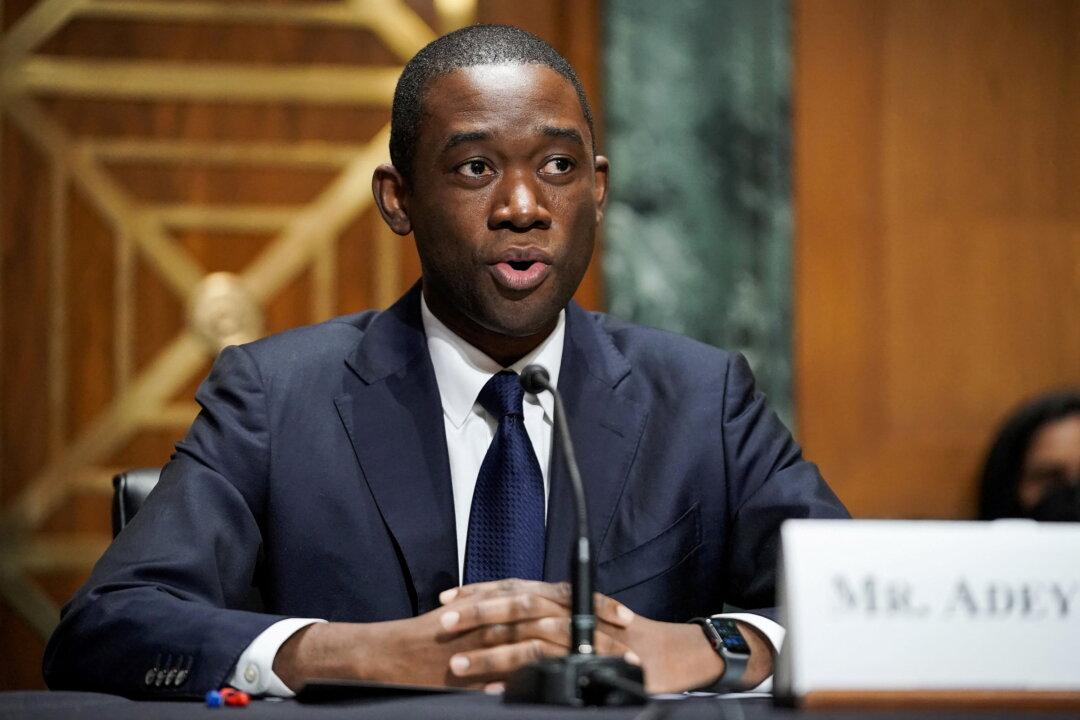LONDON—The United States and its allies plan new sanctions on more sectors of Russia’s economy that are critical to sustaining its invasion of Ukraine, including supply chains, Deputy U.S. Treasury Secretary Wally Adeyemo said on Tuesday.
Adeyemo, speaking in London on a European trip to consult with allies on strengthening and enforcing sanctions to punish Russia, said the broadening of those efforts was aimed at undermining “the Kremlin’s ability to operate its war machine.”





